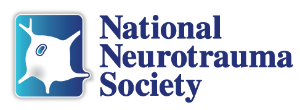Main Menu
Description & Objectives S01
S01: The Role of Amygdala in Co-Morbid PTSD/TBI








Chairs: David Hovda, PhD and Sarah Ogle, PhD
S01.01 - Clinical Relevance of TBI and Co-Occurring PTSD
Thomas McAllister, MD - Indiana University
S01.02 - Vulnerability of the Amygdala to TBI
Asla Pitkanen, MD, PhD - University of Finland
S01.03 - Persisting Pathology of the Amygdala After Diffuse TBI
Theresa Currier-Thomas, PhD - Barrow Neurological Institute
S01.04 - Amygdala-Regulated Behavioral Deficits After TBI in Rats
Session Description
Diffuse traumatic brain injury (TBI) has been labeled the signature injury of current combat operations, with anxiety disorders being a prevalent long-term consequence. Symptoms of post-traumatic stress disorder (PTSD) and TBI often overlap or are indiscriminate. The amygdala, a structure implicated in anxiety disorders and PTSD, is involved in processing emotional and stressful stimuli by integrating sensory and limbic inputs, however, the impact of TBI on the amygdala is understudied. This session aims to highlight clinical and experimental evidence that TBI causes structural and functional changes to the amygdala that can increase risk for PTSD.
Learning Objectives
At the conclusion of this session, attendees will be able to:
1. Discuss the overlap of PTSD/TBI symptoms.
2. Understand the vulnerability of the amygdala to TBI
3. Describe similarities to functional and structural changes in the amygdala after stress and TBI
